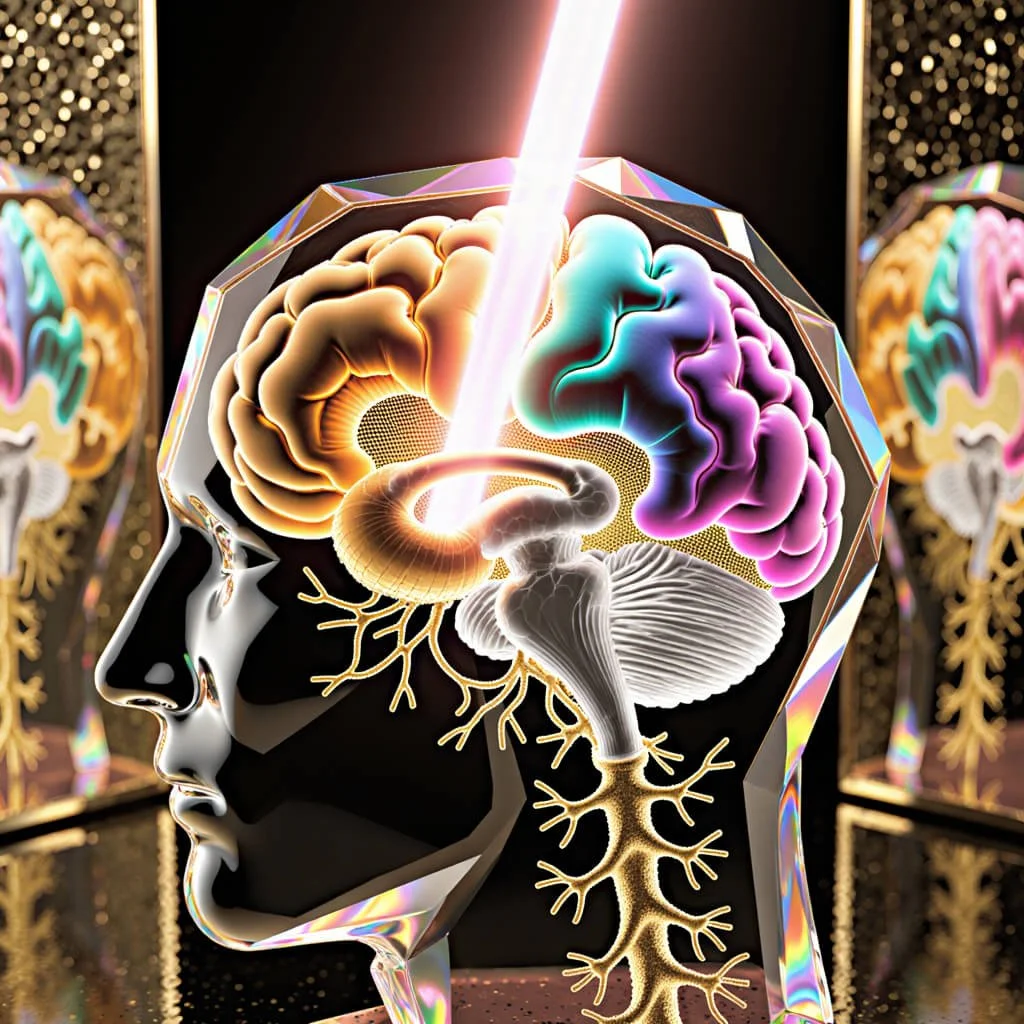Exploring the Sacred Within: Unlocking the Transformative Potential of Psychedelics
Summary:
Clinical trials show psychedelic-assisted therapy can effectively and rapidly treat conditions like depression, PTSD and addiction.
U.S. states and cities are legalizing or decriminalizing psychedelics for research and personal use, reflecting the mounting evidence.
Historic legalization of psilocybin therapy occurred in Oregon and Colorado, with reforms advancing across the nation.
Beyond the U.S., nations like Australia, Jamaica and the Netherlands are easing psychedelic restrictions as well.
With careful and ethical implementation, psychedelic therapy promises hope for many suffering from mental illness, catalyzing a shift towards more enlightened drug policies.
For decades, psychedelic substances have been shrouded in controversy, their spiritual roots overlooked and their therapeutic potential dismissed.
But the tide is turning.
Rigorous new research reveals these compounds can occasion mystical states with the power to heal individuals and elevate society.
As lawmakers explore decriminalization, it is imperative they appreciate the sanctity and utility of psychedelics, guided by science and compassion.
The Mind-Body Connection
Consciousness has long been considered a phenomenon of the brain alone.
But pioneering theories suggest it may arise from a deeper partnership between mind and body. Interoception – our sense of internal bodily signals – is increasingly seen as integral to awareness.
When interoception goes awry, disorders like anxiety, addiction and eating disorders can take hold.
Psychedelics offer a window into this relationship, temporarily altering our perception of signals from within.
In this state, we can confront subconscious material from a new vantage point.
Insights from Ancient Wisdom
While modern medicine has shunned psychedelics, traditional societies have long recognized their mystical potential.
Practices like peyote ceremonies and ayahuasca rituals guided seekers to self-transcendence for centuries before Western prohibitions.
Current evidence suggests these visionary states foster compassion and communal values.
As social psychologist Dr. Robin Carhart-Harris explains, psychedelics can reveal certain “truths about oneself and the natural world that are related to improved wellbeing.”
In many ways, science is only now catching up to ancient wisdom.
Mystical Medicine
Double-blind trials confirm psychedelics’ power when carefully administered in controlled settings.
Psilocybin therapy swiftly relieves treatment-resistant depression, with benefits lasting over a year for most.
MDMA-assisted sessions help veterans and victims process trauma, reducing PTSD symptoms. Studies also reveal decreased anxiety in terminal patients after psilocybin – with profound spiritual insights.
As researcher Dr. Roland Griffiths affirms, many participants consider their psychedelic journey “among the most personally meaningful and spiritually significant experiences of their lives.”
Beyond Pharmacology
The precise therapeutic mechanisms remain mysterious.
Yet we know psychedelics harmonize neural regions, disrupting ingrained networks.
This temporary neuroplasticity allows new perspectives to take root. Just as crucially, the non-directive support of psychedelic therapy permits deep introspection.
Patients report enhanced self-awareness and emotional release. The field increasingly recognizes psychedelics as catalysts which enable healing through meaning, rather than simple pharmacology.
Responsible Decriminalization
Given this blossoming evidence, many regulators are re-evaluating prohibitionist policies.
Oregon and Denver have decriminalized psilocybin therapy, acknowledging its mental health benefits.
Yet lawmakers must implement guardrails against reckless commercialization. Psychedelics demand expertise in preparation, guidance and integration.
When sanctioned with care, they offer tools of awakening; but when abused, only disorientation. As physician Dr. James Rucker warns, any reforms “must be explored in rigorous, controlled trials.”
Economic Potential
Beyond medicine, psychedelics' creativity-enhancing effects have captured the business world’s attention. S
mall doses may foster outside-the-box thinking, with major corporations exploring applications. But organizations should proceed cautiously, prioritizing worker wellbeing over productivity.
Similarly, the psychedelic tourism industry requires oversight to avoid commercialized pseudo-shamanism.
There are fortunes to be made, but profits must not override ethics.
Catalysts for Collective Awakening
Most profoundly, psychedelics align individuals with universal truths – our shared mortality, the sanctity of nature, unconditional love.
By temporarily dissolving old habits of thought, they offer a reset button for the mind. According to philosopher Sam Harris, they can "burst the filter bubble of ordinary consciousness.”
The implications are societal: studies show psychedelic users become more open, compassionate and ecologically concerned long after their sessions.
Could carefully-guided collective experiences help heal today’s cultural divides?
Our Window of Opportunity
After decades of sensationalism, the time is ripe for an enlightened understanding of psychedelics – one recognizing their risks yet embracing their potential.
We cannot afford to ignore any tools which foster human flourishing and reconnection. Now that the doors of perception stand ajar, it is up to all of us to walk through in wisdom.
With diligent research into benefits alongside ethical use, psychedelics could catalyze an awakening to help our society actualize the better angels of its nature.
Our wellbeing and progress depend on it.
The path ahead promises insight into the landscape of consciousness and the sacred depths within each of us.
With care, psychedelic research can unveil a future where humanity lives, connects and heals in alignment with ancient truths once more.
We must seize this precious opportunity to listen to what the mystical storehouses of nature are whispering to us still.
The Expanding Horizon of Psychedelic Reform
In a major milestone, California's Senate Bill 58 passed the State Assembly on September 7th, 2023, moving the state closer to legalizing personal possession and use of certain natural psychedelics like psilocybin and DMT.
The bill underscores a wave of psychedelic reform sweeping across America.
Oregon and Colorado have already legalized psilocybin therapy, while Washington D.C. decriminalized entheogenic plants.
Other states like Connecticut, Maryland and Texas are expanding access for research and PTSD treatment.
Decriminalization initiatives have passed in major cities like Denver, Oakland, Santa Cruz and Ann Arbor.
This momentum reflects growing evidence of psychedelics' therapeutic potential.
Rigorous trials show psilocybin can rapidly alleviate treatment-resistant depression, MDMA reduces PTSD, and ayahuasca may treat addiction.
The FDA has granted breakthrough status for psilocybin and MDMA therapy.
Beyond the U.S., Australia legalized psilocybin and MDMA therapy in July 2023. J
amaica, Costa Rica and Peru allow plant medicines like ayahuasca.
The Netherlands enables psilocybin truffle sales.
Other nations are funding psychedelic studies, with Canada and the U.K. poised for reforms.
A historic shift is occurring as science, mental health imperatives and calls for drug policy reform converge.
While careful implementation is critical, these compounds promise hope for many struggling with serious conditions.
With compassion and wisdom, psychedelic legalization can unlock unrealized human potential and healing.
The contours of a more enlightened society are emerging as the doors of perception open.
Implementing Psychedelics with Pragmatism and Compassion
The potential of psychedelic-assisted therapy represents a hopeful new paradigm for mental healthcare.
As access expands, more individuals may pursue psychedelic experiences recreationally or spiritually.
This heightens the need for therapists to become psychedelic-literate - equipped to understand these states and integrate insights into treatment.
It is crucial we establish pragmatic frameworks, from professional codes of ethics to reducing stigma around safe psychedelic use.
With diligent effort, we can foster openness and ensure those seeking therapy feel supported, not judged, for profound experiences.
Above all, compassion must guide this historic transition.
Psychedelics demand expertise and care to unlock their benefits, not reckless commercialization.
As regulators chart new territory, the wellbeing of patients and communities must come first.
Change is unfolding rapidly, but wisdom advises us to walk before we run.
With measured steps guided by empiricism and humanism, psychedelics' vast potential can be harnessed to heal. But we must proceed together prudently.
At this pivotal juncture, pragmatism and compassion are vital.
The doors of perception are opening, but we must frame them with care.
Join Ultra Unlimited as we advance the research and dialogue to implement psychedelics responsibly, ushering in a new era of understanding, healing and human flourishing.
With open minds and hearts, a brighter future awaits.

















